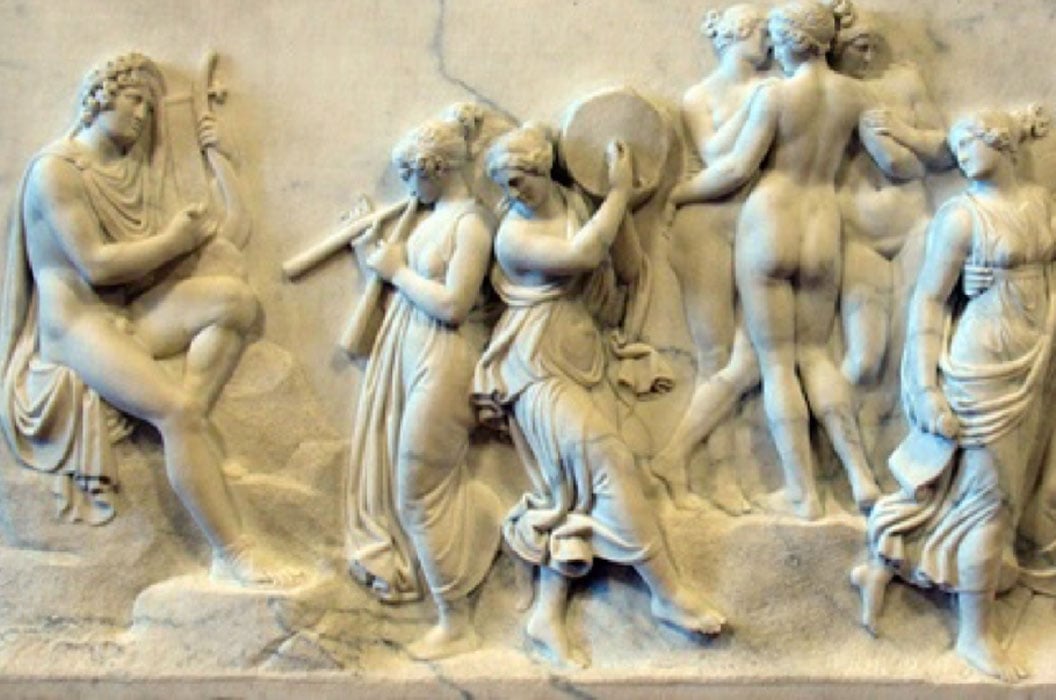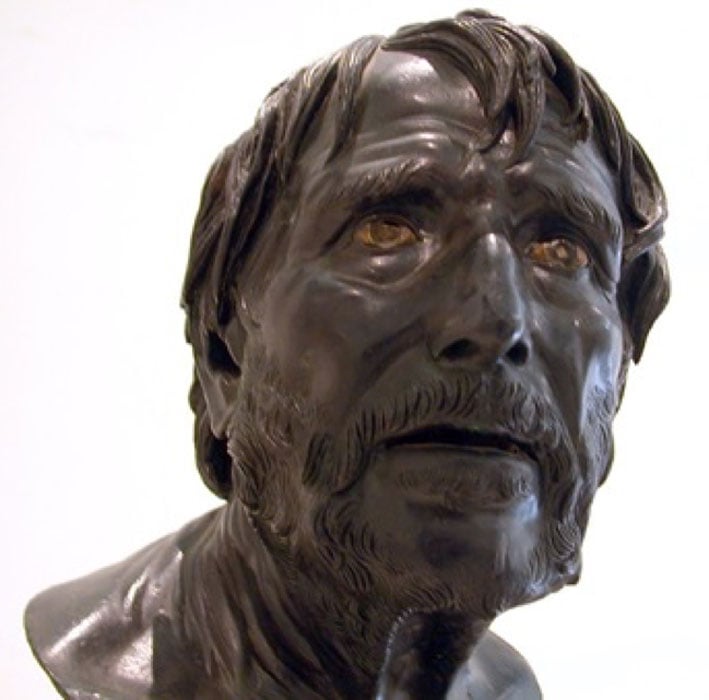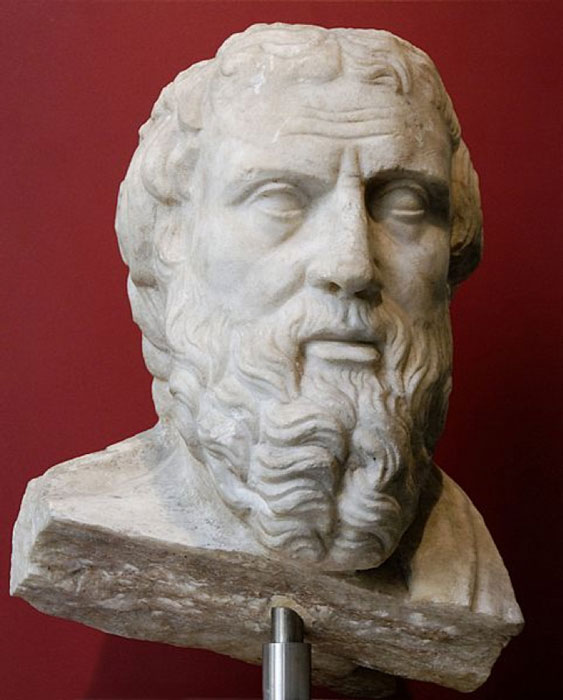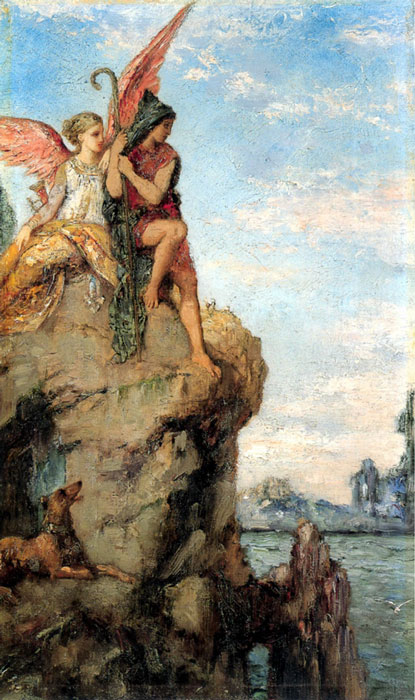
Hesiod’s Concerns About Economics and Polis During the Greek Dark Age
The Greek Dark Age fits between the Late Bronze Age Collapse - often alternately referred to as the Mycenaean Civilization Collapse, around 1200 BC - and the Greek Archaic Period, around 800 BC. The Late Dark Age’s catastrophic end was foreshown by the collapse of the Mycenaean civilization, when all major Mycenaean provincial centers succumbed to a combination of destruction and abandonment. As a result, information regarding as to what happened, documented in the Linear B script - the Mycenaean writing system - was lost shortly after 1200 BC and therefore one cannot effectively find written material documenting this period. The only recourse the historian has is to submit to the findings of archaeology to gain an understanding of the Greek Dark Age - a time when Greek culture almost disappeared. What kept the recollection of the Greek Dark Ages from completely slipping into the abyss, was the polis. However, another shining beacon of information in this dark era of history, is the poetry of Hesiod.

A Roman-era sculpture possibly representing Hesiod, believed by ancient readers to be the author of the Catalogue of Women (CC BY-SA 2.0)
Hesiod was born during the Greek Dark Ages circa 750 BC. He lived in Boeotia as he mentioned in his book Works and Days, where he states: “Ascra, which is bad in winter, sultry in summer, and good at no time.” He was a shepherd and was said have been blessed with the gift of song or poetry as described in the book Theogony (ll. 22-35). Hesiod had a brother named Perses, mentioned in Works and Days, to whom he offers advice. Hesiod tells his brother if he works hard, his character will also be strong: “Do not worry about others and focus on yourself in order to get ahead. To have envies and strife is good medicine, for it will drive one to achieve more and if so will gain more in wealth and build perspective”. Hesiod continues for some length in Works and Days on the topic of strife and envy.
Herodotus’ The Historians
In Herodotus’ book The Historians, he mentions that Homer and Hesiod were the first to compose poetry in a style which all Greeks of various classes could read or listen to. Homer to the Greeks was the equivalent of the song Glory Days by Bruce Springsteen for modern Americans, for when they hear the song they tend to reflect on much simpler and glorious times. In Homer’s era, both poetry and prose walked hand in hand with the gods, as might makes right. Hesiod’s work Works and Days is reminiscent of the song Family Graveyard by the outlaw country band Those Poor Bastards, for the lyrics of the song captures religion infused with myth, life and death, along with hard work and hope for better times. Thus, Hesiod’s book was a reminder of when times were tough, for centralization was nonexistent and decentralization was the order of the day. This was due to the loss of the palace-state systems. Ordinary citizens had to rely on themselves to make ends meet, for in the end, self is all that matters if one is to achieve what is desired, through hard work and perseverance, a-la Hesiod.

Bust of Herodotus. Greek marble, Roman copy of a Greek original of the early 4th century BC. From the area of Porta Metronia, Rome. (Public Domain)
Herodotus provides a glimpse into the past, but one must not forget that Herodotus would have preferred a centralized state due to his favoring of both Greek and Persian systems as described in his work The Histories. Therefore, Herodotus would have seen one book as light, while the other as darkness seeking light. In other words, one could see the Homeric view as ‘men and the gods’ while Hesiod is viewed as ‘man and the gods’. What can Hesiod provide as a glimpse of the Dark Ages?
- Homer: From Oral Tradition to Canon
- Herodotus, Cato the Censor and Josephus: Understanding the Life and Times of Historians of the Ancient World
- Pandora, the Goddess who Unleashed both Hell and Hope upon Humanity
Hesiod’s Individualism
Hesiod’s book displays man, not men, as the central planner, a rather unique individualism that is somewhat similar to the ancient Israelites before the time of kings. As the book of Judges 21:25 states: “In those days [there was] no king in Israel: every man did [that which was] right in his own eyes.” In addition, one will also notice Hesiod’s advice to his brother about hard work and trying to focus on one’s own interest to get ahead. This may indicate that during the Dark Age in Greece, people may have lived in a kind of semi-communal society or maybe even a kind of privet law society to some extent. It seems that decentralization was the norm, until these various societies began to organize themselves into a polis or city. For when Hesiod wrote his book, the Greek Dark Age was approaching its ending and the polis system was on the rise. In a sense, Hesiod’s advice to his brother may indicate that the polis system was already sprouting and Hesiod disapproved that his brother acted for the good of the community, which seems contrary to ‘voluntarism’, which Hesiod seemed to have advocated through his writings.






